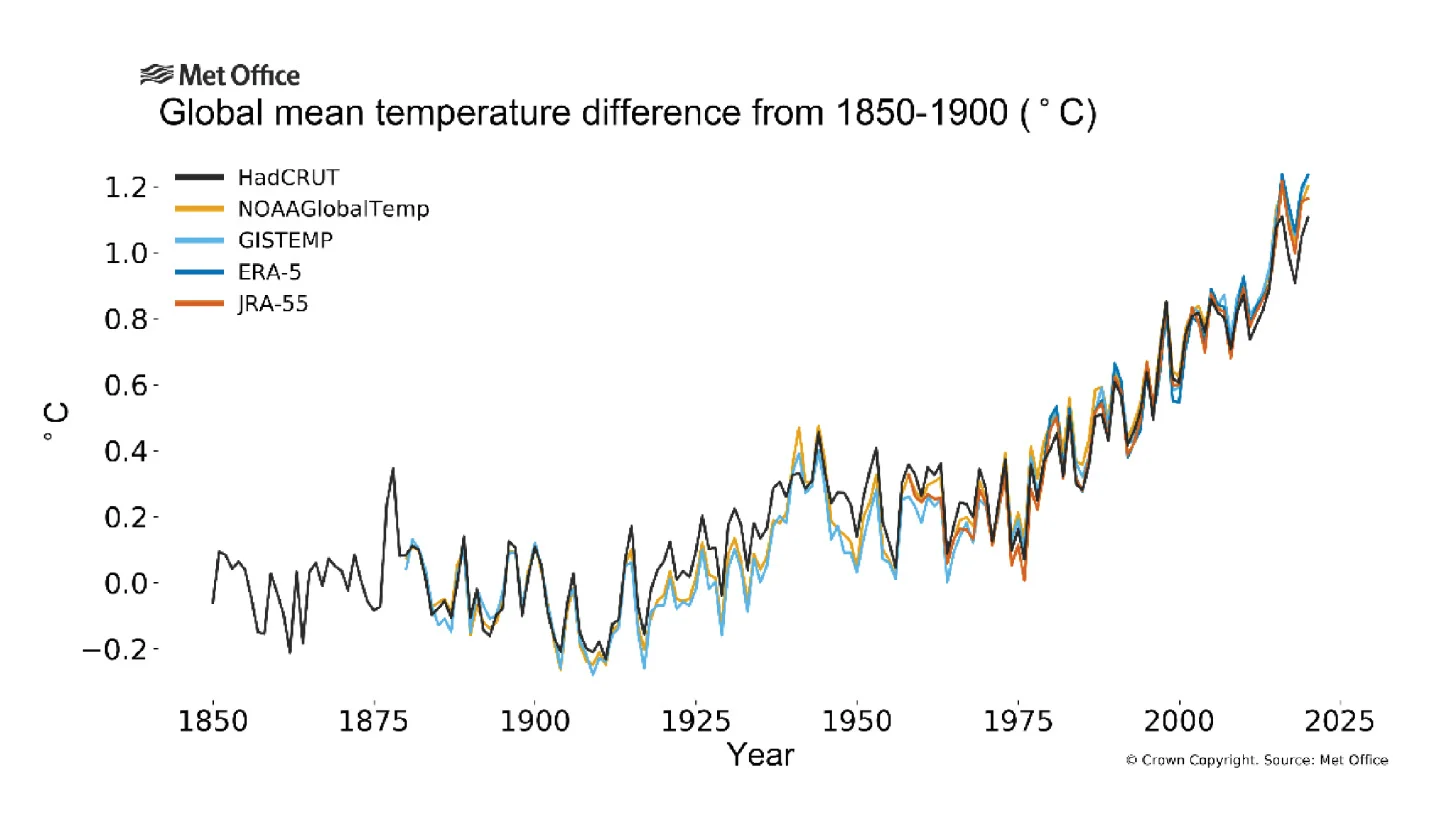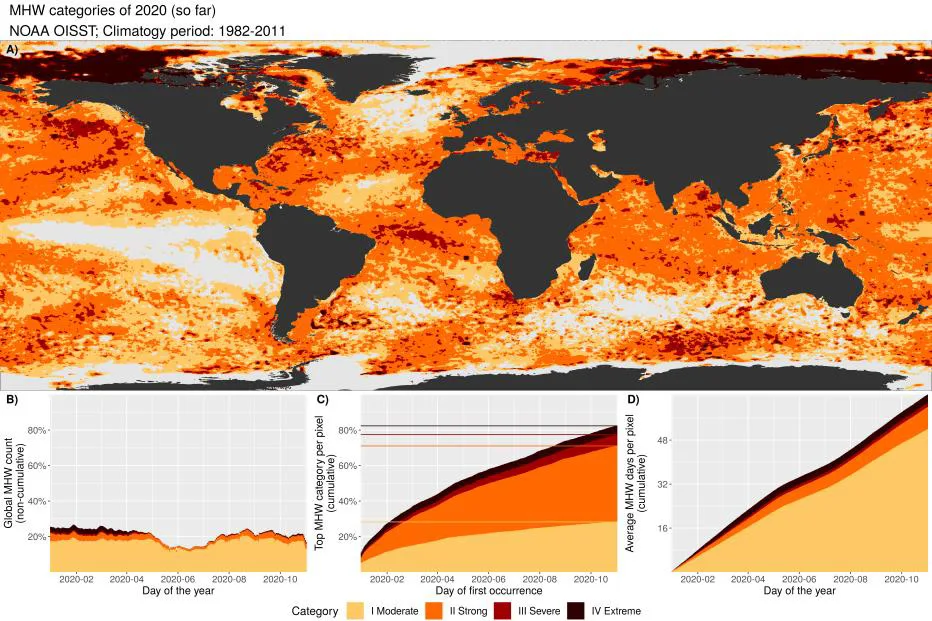
2020 will be one of the three warmest years on record, says WMO
Global temperatures are on the verge of exceeding the Paris Agreement.
Each year, the World Meteorological Organization (WMO) publishes a report on the state of the global climate. This report concludes that 2020 will be one of the three warmest years on record, that the decade 2011–2020 is the warmest since meteorological data were compiled, and that the last six years (2015–2020) are the hottest on record.
The final report to be published in March 2021 will provide contributions from dozens of international organizations and experts that predict "high-impact events including extreme heat, wildfires and floods, as well as the record-breaking Atlantic hurricane season" will have "affected millions of people, compounding threats to human health and security and economic stability posed by the COVID-19 pandemic."
PARIS AGREEMENT ON THE VERGE OF BEING EXCEEDED
According to this report, the global average temperature for 2020 is set to be about 1.2°C higher than pre-industrial (1850–1900) levels. The Paris Agreement stipulates that signatory countries must act to prevent the global average temperature from rising more than 2°C and use whatever measures possible to limit this rise to 1.5°C. It is entirely possible that the global average temperature increase could reach, on a few occasions, 1.5°C by 2024.

Global annual mean temperature difference, for January-October 2020, compared to preindustrial conditions (1850–1900). Five different data sets reveal similar results, that this year will be one of the warmest on record. Credit: WMO
Among other climate change phenomena, another important feature of 2020, is that 80 per cent of the global ocean experienced a marine heat wave. Since the Earth is 71 per cent covered by water the heat released from these water bodies will only accelerate global warming.

Global map showing the highest Marine Heatwave (MHW) category experienced at each pixel over the course of 2020. The graphs, left to right, reveal the percentage of the oceans experiencing MHW on each day of the year, the cumulative percentage of the oceans suffering MHW over the year, and the cumulative number of MHW days averaged over all pixels on the map. Credit: WMO
There is also an unusual, but important finding revealed in the report: In 2016, currently the hottest year on the books, we had an intense El Niño episode. Historically, El Niño years are always warmer. Yet, for almost two years after, a La Niña pattern took hold, which normally cools the planet down. Regardless, 2017 and 2018 still rank among the hottest years on record. Now, despite another moderate La Niña episode developing, 2020 is on track to become one of the three hottest on record — possibly even finishing second, just behind 2016.
THE MANY IMPACTS OF GLOBAL WARMING
In 2020, several regions of the world were grappling with wildfires of record sizes. These raged in Australia, Siberia, South America, but also on the west coast of the United States. All these fires propelled clouds of smoke to high altitudes that circled the Earth, while adding even more carbon dioxide to the greenhouse gases in our atmosphere.

Temperature anomaly map (left) shows the extreme heat experienced the Arctic Circle, while the Sea Ice anomaly map (right) reveals the extent of sea ice melting due to this Arctic heat. Credits: WMO
The Siberian Arctic region experienced unprecedented heat waves in 2020, even reaching 38°C in June. This is the highest temperature ever recorded above the Arctic Circle.
The size of the Arctic polar cap was at its lowest on record between July and October. The Greenland ice sheet, alone, shrunk by 152 gigatons this year, although the rate of reduction in 2020 is somewhat lower than last year.
Watch below: Death Valley just recorded one of the hottest temperatures on Earth
In California's Death Valley, the mercury rose to 54.4°C on August 16. This is now the highest temperature recorded on Earth for at least 80 years. Cuba, Australia and the Mediterranean basin each set all-time temperature records.
Ocean temperatures also made 2020 a record year for tropical systems. With 96 cyclones, the year 2020 is above the historical average. In the Atlantic Basin alone, 2020 was the busiest year since data keeping began, with no less than 30 tropical systems emerging this year in the North Atlantic.
With files from Scott Sutherland











